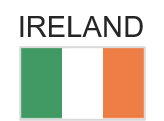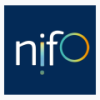
National Interoperability Framework
The National Interoperability Framework (NIF) is a set of standards, policies, and guidelines that ensure that information and communication technology (ICT) systems can communicate and share data seamlessly. It promotes the development of interoperable systems that facilitate data exchange and collaboration between different organizations and levels of government. The NIF provides a common language and a framework for ensuring that ICT solutions are compatible, secure, and reliable, which enhances the efficiency of public services and improves citizen outcomes.
Good Practices
This section provides examples at the national level in line with a selection of different thematic areas of the European Interoperability Framework (EIF). Further initiatives and good practices are available in the country’s Digital Public Administration Factsheet.
In specific national domains, there is the promotion of the use of open specifications. For example, within the Open Data Technical Framework, there is a recommendation to ensure that data is available and published in an Open Format. The Public Service Data Strategy commits to the introduction of standards and guidelines to promote data reuse - it is envisaged that these standards and guidelines will promote the use of open specifications. Ireland's national Life Events Portal will utilise building blocks and open specifications are used cross-border for the Beneficial Ownership Registers Interconnection System (BORIS). Moreover, the Public Service Data Catalogue, the Public Service API Catalogue and the Public Service API Standards will be joined by new standards and guidelines, in line with GDPR Article 40 that are currently being created. These standards will help to ensure a uniform approach to data management for all Public Bodies.
Ireland continues to expand its Build to Share approach of reusable building blocks and generic components across the public sector. It also provides building blocks and API references, and has created a reference architecture that includes key building blocks such as Digital ID, Content Management, Data Collection, Case Management, Information Mediator, and Digital Wallet. A secure space in the cloud also has been created, allowing Public Service Bodies to test implementation, for example, components of the Once Only Technical System as well as the upcoming Life Events Services, digital Wallet, and Government credentials.
As outlined in Circular 14/2021, the Office of the Government Chief Information Officer (OGCIO) leads the digital agenda across Government and ensures that digital and ICT-related initiatives are appropriately aligned with all relevant government policies and the strategies that support them. OGCIO is instrumental in ensuring coordination on interoperability nationally and with the EU. For example, OGCIO has worked with many Member States at all three of the Commission hosted Projectathons in 2023 regarding the testing of interoperable solutions for the Once Only Technical System. OGCIO has also engaged with Member States outside the Projectathons, including Portugal and Sweden, and manages the Build to Share programme that ensure the interoperability of key applications across Government Departments.

